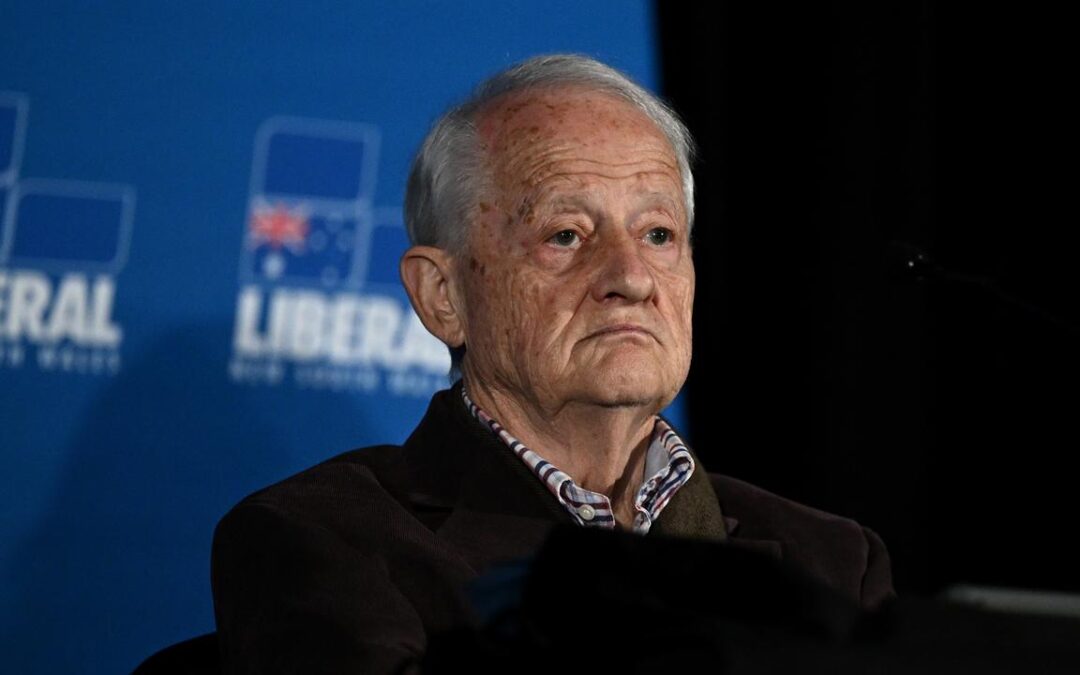
Liberal elder blasts Nationals over net zero stance
A Liberal elder has blasted the Nationals for breaking with their coalition partner over net zero by 2050 as Opposition Leader Sussan Ley prepares to unveil a long-awaited climate and energy policy.
Liberal MPs and senators will meet in the next fortnight to thrash out the final details of a new energy plan after rifts were exposed about what direction the coalition should take after Labor’s landslide election win in May.
Internal debate over the coalition’s energy policy was given new impetus over the weekend when the Nationals announced they were abandoning any commitment to net zero by 2050.
Phillip Ruddock, the second-longest-serving MP in Australian history, questioned the regional party’s decision to go its own way on the issue.
“The idea that you meet separately and say this is our stand, and if you don’t like it you’re on your own, is not a very sound coalition,” he told AAP.
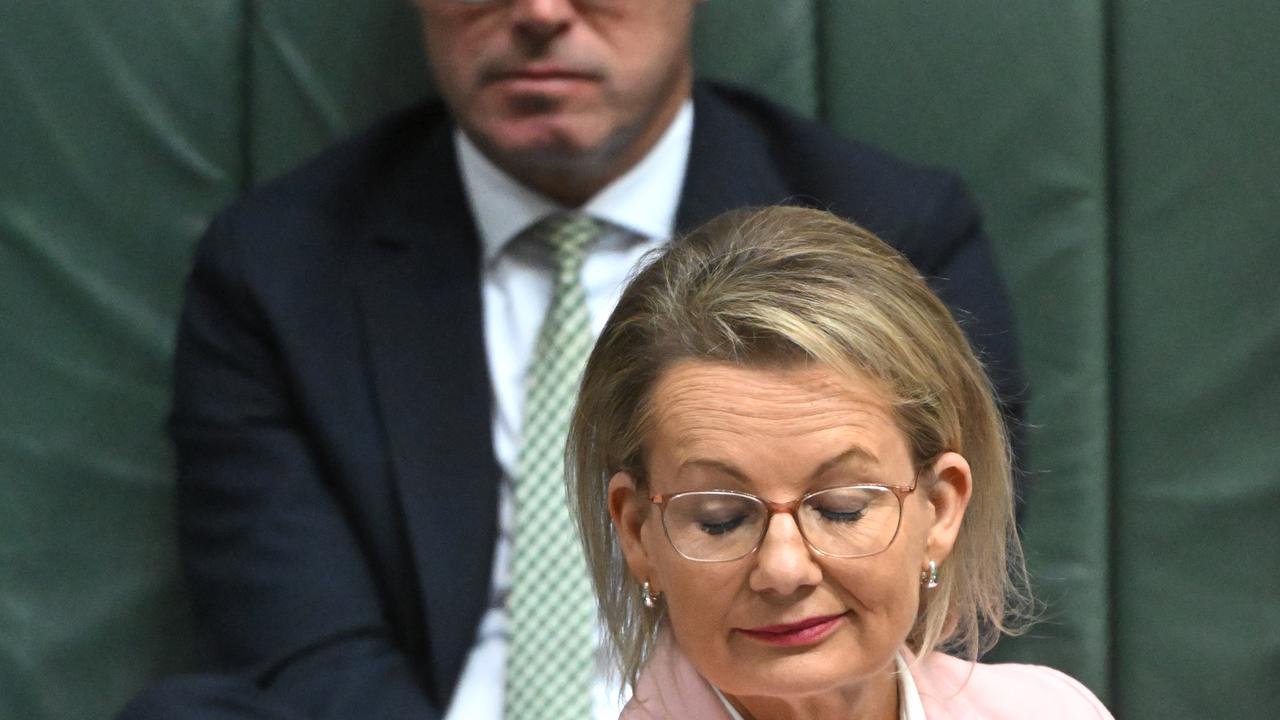
Mr Ruddock said the coalition was best served by the Liberals and Nationals working together as a team.
In walking away from net zero, the Nationals believe emissions reductions should be pegged to an average of similar countries within the OECD.
The move, followed by a dire poll revealing support for the Liberals had hit historic lows, prompted speculation that Ms Ley’s days in the party’s top job may be numbered.
Some Liberals, mostly from the conservative flank, have been undermining their leader publicly and privately.
Mr Ruddock urged MPs to work together.
“I am of the view that you do best when you have a team, and not a team of champions,” he said.
A date is yet to be locked in for the Liberals’ meeting on energy policy, although November 23 has been flagged as it’s the Sunday before the final parliamentary fortnight of the year.
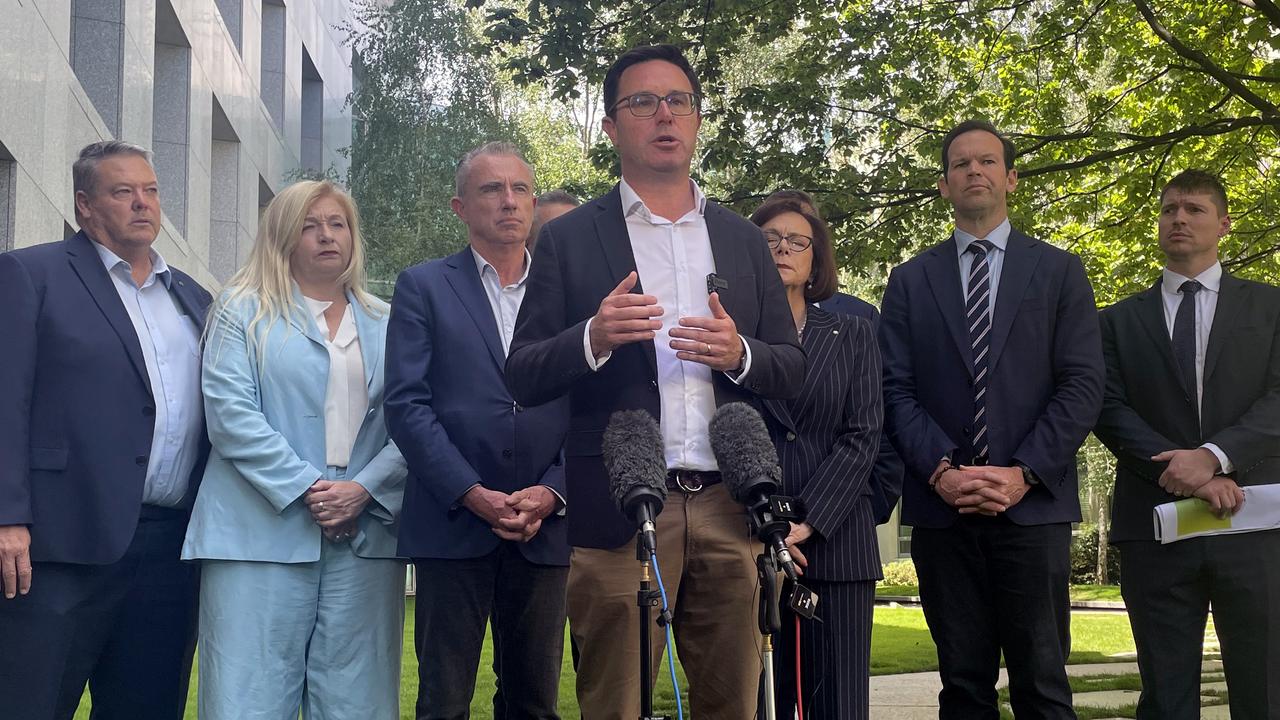
MPs want the debate sorted before parliament rises for the year.
Party insiders have also played down the prospects of a leadership spill this year over the issue.
Moderate Liberal senator Andrew Bragg said Australia would become a “pariah state” if it ditched its 2050 target.
Fellow frontbencher Tim Wilson said Ms Ley needed to stand up for the Liberals and their right to make their own decisions on policy.
He praised his leader for standing up to the Nationals when the coalition briefly split earlier in the year.
“She stood her ground because she knows that once she loses moral authority, you can’t get it back,” Mr Wilson told Sky News.
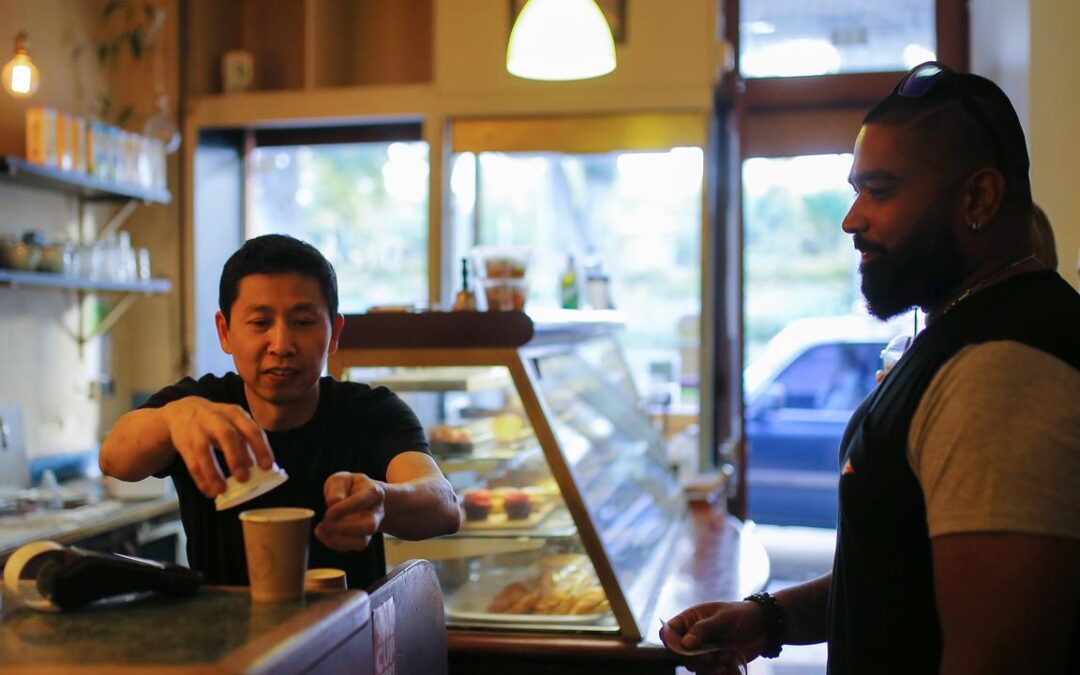
The worrying trend that could put an end to rate cuts
In the shock inflation print that scared the Reserve Bank off cutting interest rates at its latest meeting, two items gave governor Michele Bullock particular cause for concern.
After the central bank kept the cash rate steady at 3.6 per cent on Tuesday, Ms Bullock did not rule out more rate cuts, if a spike in inflation proves to be temporary and price growth resumes its downward trajectory.
But a rise in the cost of new dwellings and the price of services, such as dentists and takeaway meals, suggests inflation could be more entrenched than previously feared.
That could rule out further rate cuts.
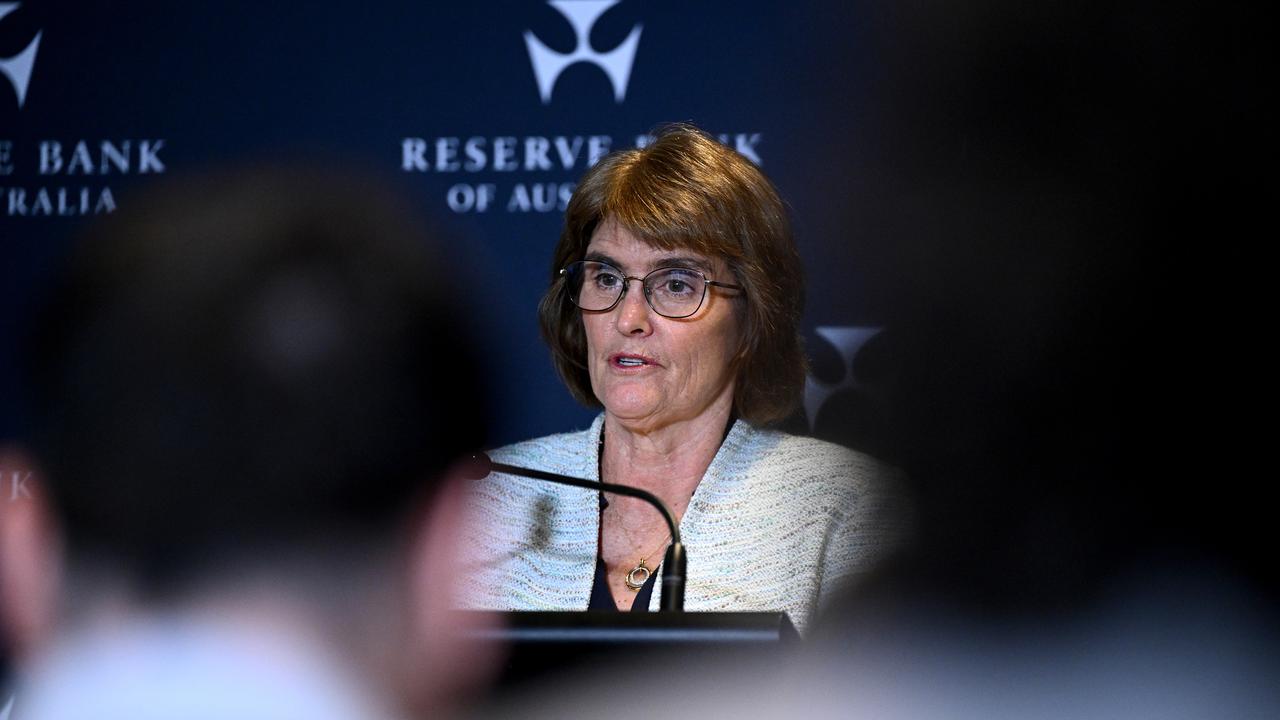
As it stands, Ms Bullock thinks the big jump in September was largely “transitory”, driven by one-off factors like a rise in council rates and international travel, and won’t be repeated.
“Now we’ll be looking at the data, and if that doesn’t look like it’s happening, then we’ll have to re-examine our forecasts and our thinking about how much of it was temporary and how much was not,” she told reporters following the meeting.
Commonwealth Bank head of Australian economics Belinda Allen saw the September inflation jump as driven by stronger consumer demand, rather than just temporary factors.
“Market services and new dwelling construction costs do generally have more persistence to them compared to other categories,” she said.
In the RBA’s Statement of Monetary Policy released alongside its cash rate decision, bank staff said reduced discounting and increased base prices contributed to the rise in the cost of new homes.
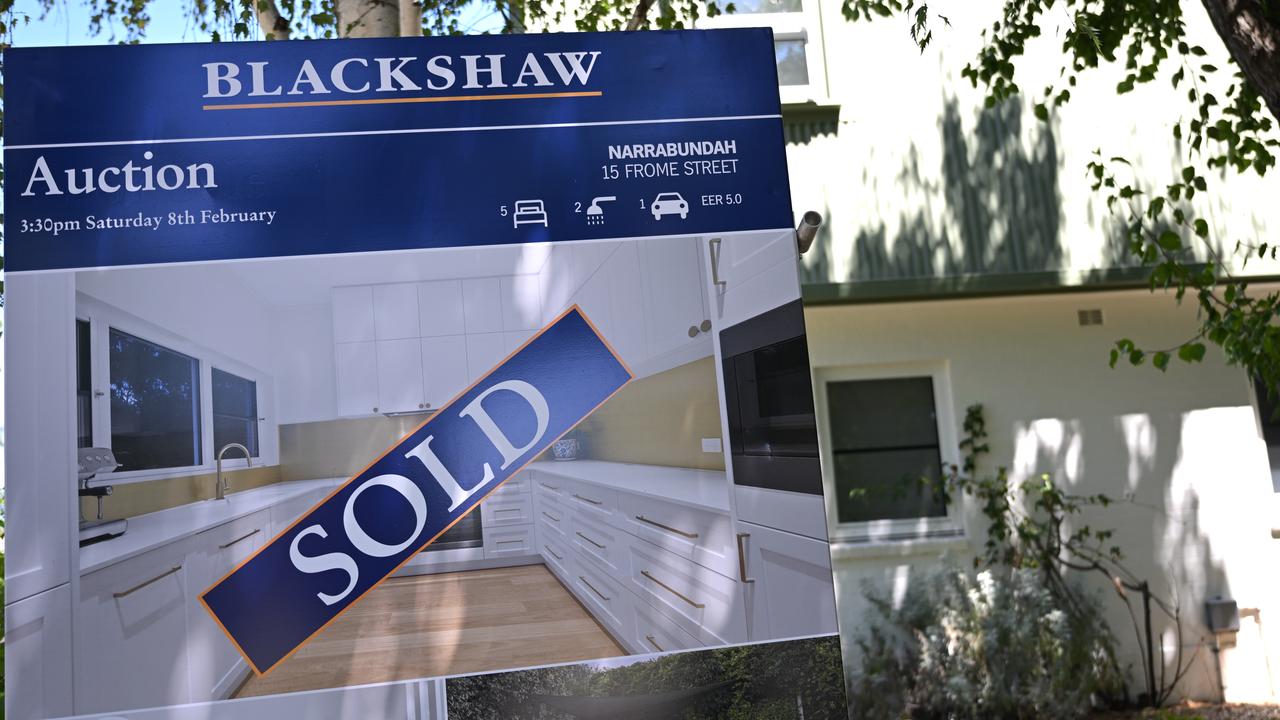
Boosted by lower interest rates and rising real wages, buyers have flooded back into the property market.
“The unwinding of discounting by home builders could be a one-off,” RBA staff wrote.
“Although it could also continue alongside ongoing strength in the housing market.”
Strong services inflation could also reflect the economy is heating up in a way that would be more difficult for the RBA to get back under control.
Prices for services are more influenced by wages and therefore more reflective of domestic inflationary pressures.
“The quarterly inflation rate picked up across a number of components, most notably for meals out and takeaway food – which may partly reflect difficulty finding staff, as well as rising costs for some food inputs,” the Reserve Bank said.
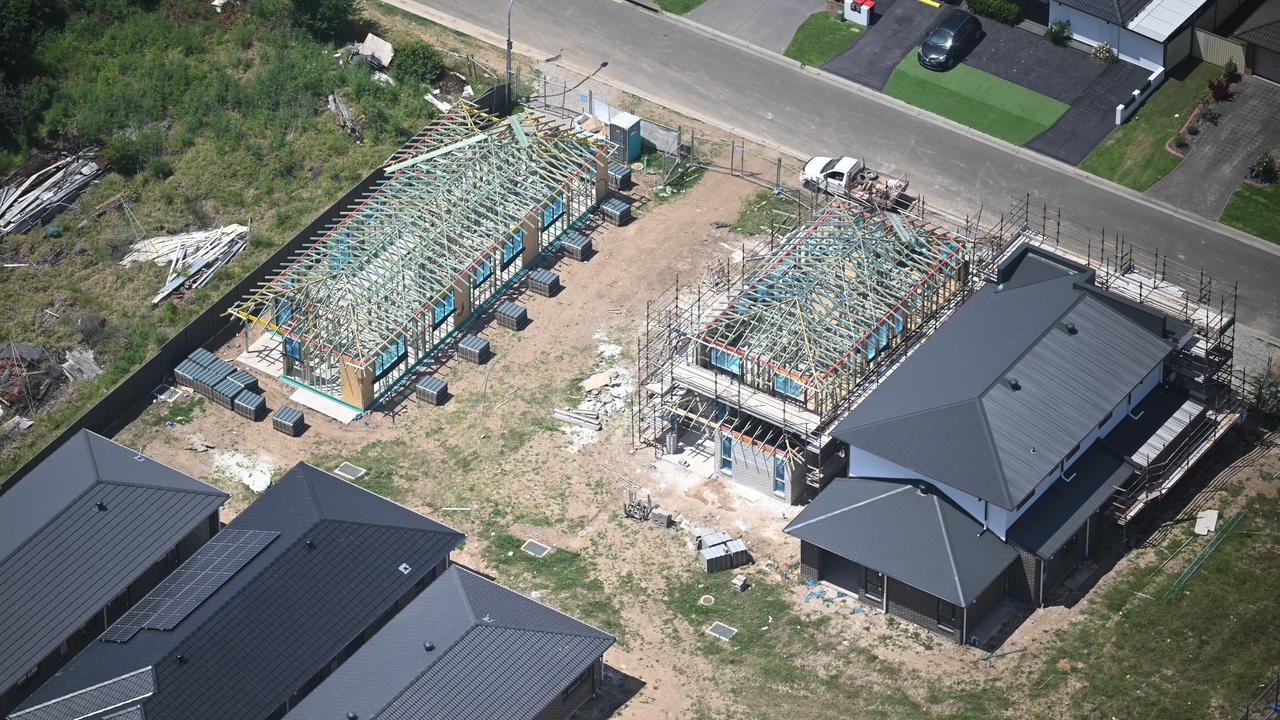
Australia’s ailing productivity growth in recent decades has exacerbated rising labour costs.
The RBA expects productivity growth to increase, taking pressure off unit labour costs for businesses.
But another below-forecast result for productivity could mean it takes longer to get inflation under control than the RBA predicts.
As Ms Bullock made clear, the board will keep a close eye on upcoming data and all options are on the table, including a rate rise.
“If inflation remains elevated in 2026 and does not come down on a quarterly basis, the RBA may need to act,” said Ms Allen.
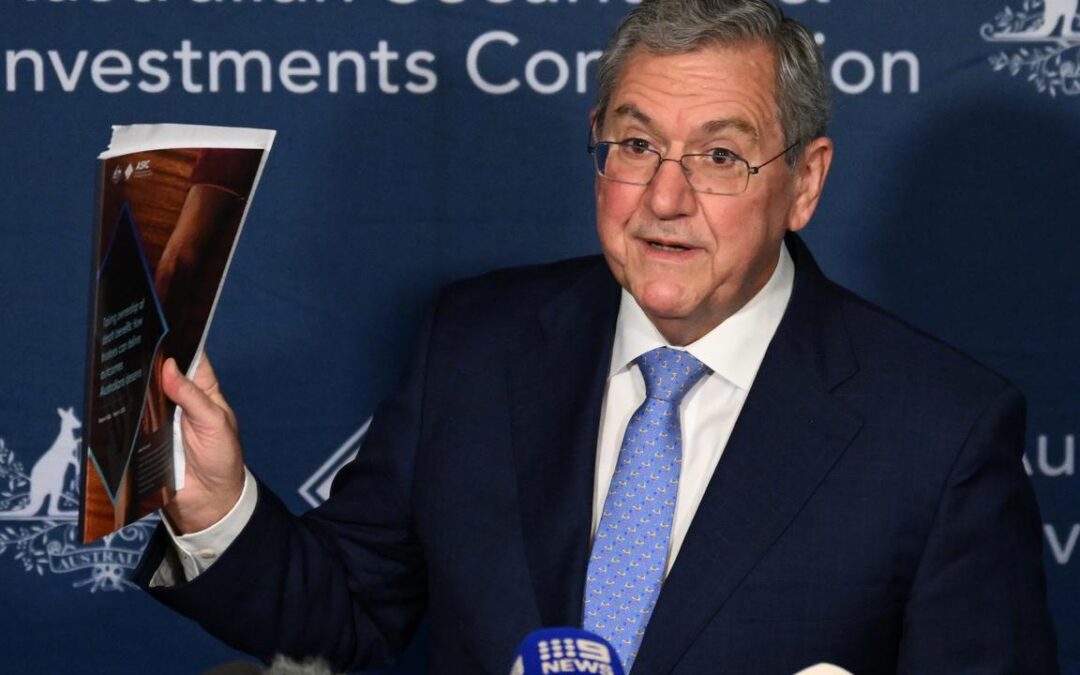
Outgoing watchdog chief puts non-bank lenders on notice
Australia’s corporate regulator is warning non-bank lenders and superannuation funds of stronger regulatory action if it does not see improvements in compliance from the opaque private credit and equity sectors.
The outgoing chair of the Australian Securities and Investments Commission, Joe Longo, has released a roadmap for how the watchdog plans to boost investment in the nation’s public and private markets while strengthening their integrity.
The regulator wanted to be a backer, not a blocker of investment, Mr Longo said before an address to the National Press Club on Wednesday.
“This roadmap lays out the choices and future of Australia’s markets. We want our markets – private and public – to grow. That growth means stronger businesses, more jobs and a boost to our economy,” he said.

The roadmap, which was accompanied by three reports on the sector, is the latest stage in a major piece of work being conducted by ASIC amid a decline in initial public offerings and concerns about a lack of transparency in the growing private credit and equity markets.
Private credit funds are estimated to have grown by more than 500 per cent in the past decade.
ASIC says there are positives to the growth of private markets, such as increasing the availability of “patient”, long-term capital.
But while some participants demonstrated strong practices, ASIC also witnessed many examples of poor practices that risked eroding confidence in the sector and hindered its development.
Commissioner Simone Constant said it was clear increased oversight of private markets was essential.
“ASIC will continue its surveillance and enforcement work in private credit to ensure compliance with the law. If we do not see material improvements, we are prepared to pursue stronger regulatory action,” she said.
ASIC’s roadmap promised to provide new regulatory guidance to clarify fund managers’ obligations and improve industry standards.
The recent collapse of managed investment schemes First Guardian and Shield Master Fund highlighted how failures in private market products could be devastating to Australian consumers.
About 12,000 Australians lost up to $1.2 billion in retirement funds, prompting ASIC to engage with the government on law reform to weed out bad behaviour in the sector.
ASIC called for the government to give it more tools to supervise funds, including data collection and independent auditing of wholesale funds.
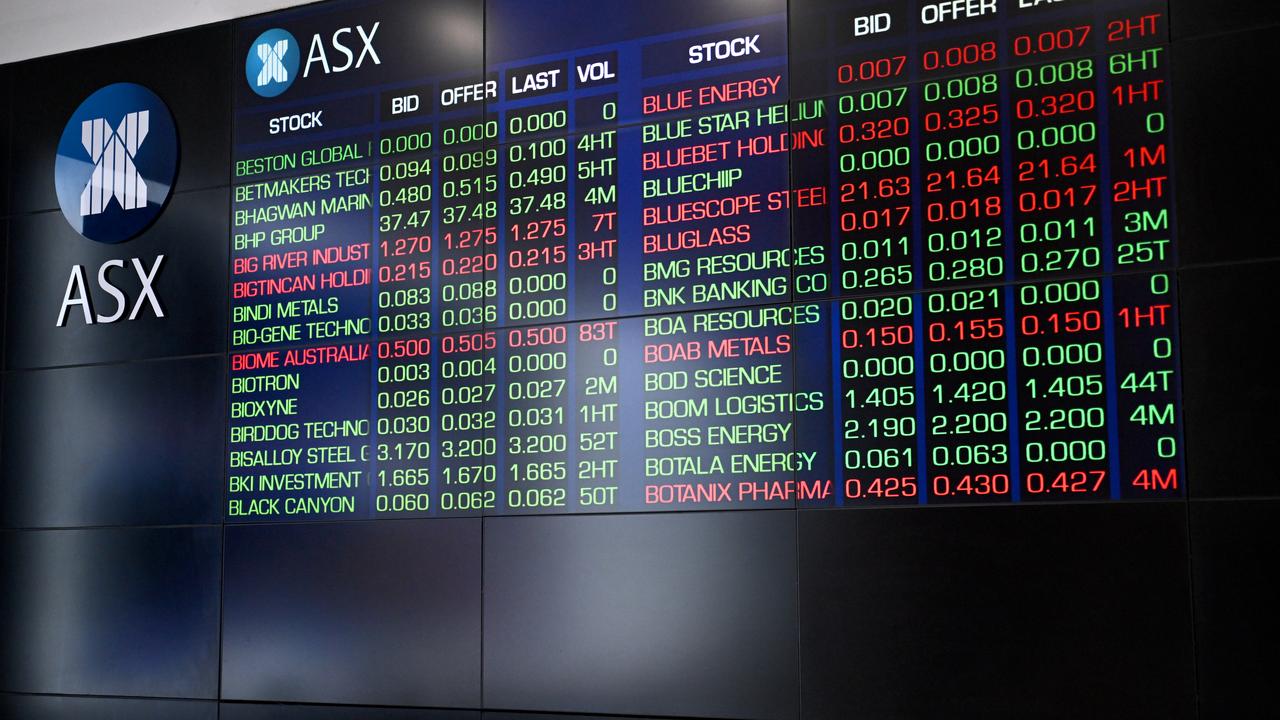
The regulator will also continue its work on reforming public markets and up its scrutiny on troubled stock exchange operator ASX.
The value of equity raised in public listings has fallen by 82 per cent in the past decade, with ASIC saying a lack of confidence in the share market operator was a significant factor.
The Australian Securities Exchange has been under pressure over a series of system outages amid its bungled overhaul of its clearing and settlement infrastructure.
“Australia’s public markets must be open to modernisation, innovation and reform so that Australia remains competitive and attractive to investors and enterprise,” ASIC said in a report released on Wednesday.
ASIC in October gave the green light to US-based market operator Cboe to provide listing competition to ASX by allowing an alternative exchange in Australia.
But Cboe threw a spanner in the works at the weekend when it announced it was putting its Australian arm up for sale.
ASIC vowed to work closely with Cboe through the sale process to find a suitable buyer for Cboe Australia.
The Australian Banking Association, the Association of Superannuation Funds of Australia and the Financial Services Council welcomed ASIC’s continuing work to strengthen oversight of private markets.
“Industry agrees with ASIC’s assessment that there is a spectrum of practice, and that during this period of rapid growth in the sector robust minimum standards are necessary to maintain regulator and consumer confidence in the industry,” Financial Services Council CEO Blake Briggs said.
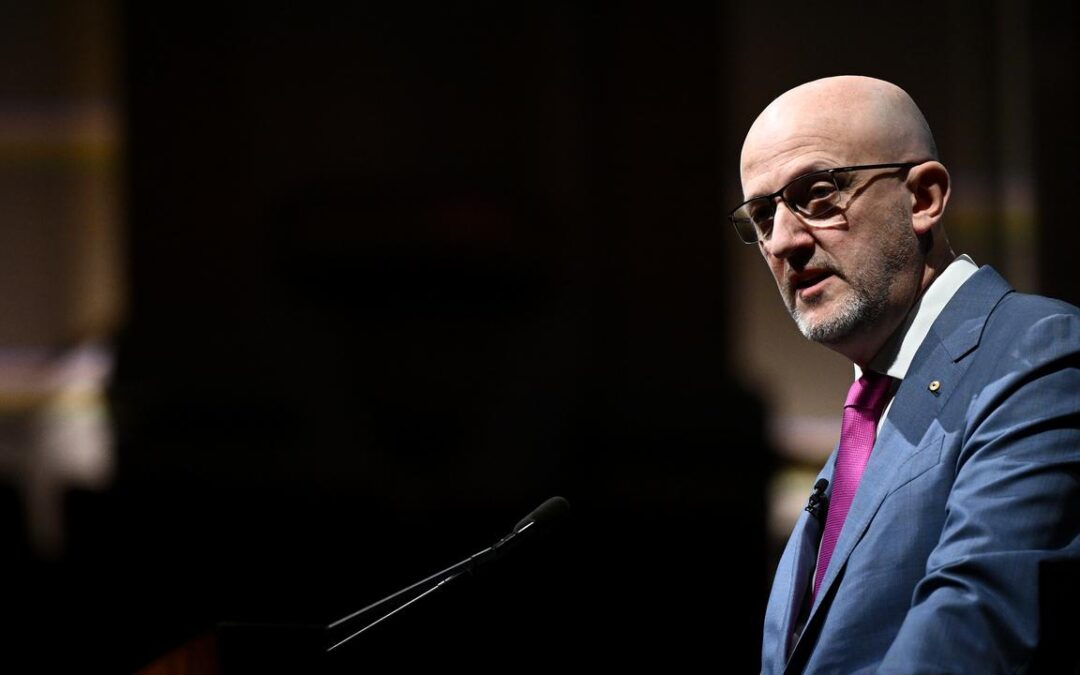
Three nations on notice after assassination revelations
The country’s top spy has put three nations on notice after sensationally revealing there was a “realistic possibility” a foreign government would attempt an assassination on Australian soil.
The trio were not directly named by Australian Security Intelligence Organisation director-general Mike Burgess in the 2025 Lowy Lecture on Tuesday night.
But identifying them may not have been necessary.
“The countries that I didn’t mention by name know who I’m talking about,” he said in conversation with Lowy Institute executive director Michael Fullilove.
“We know who they are.
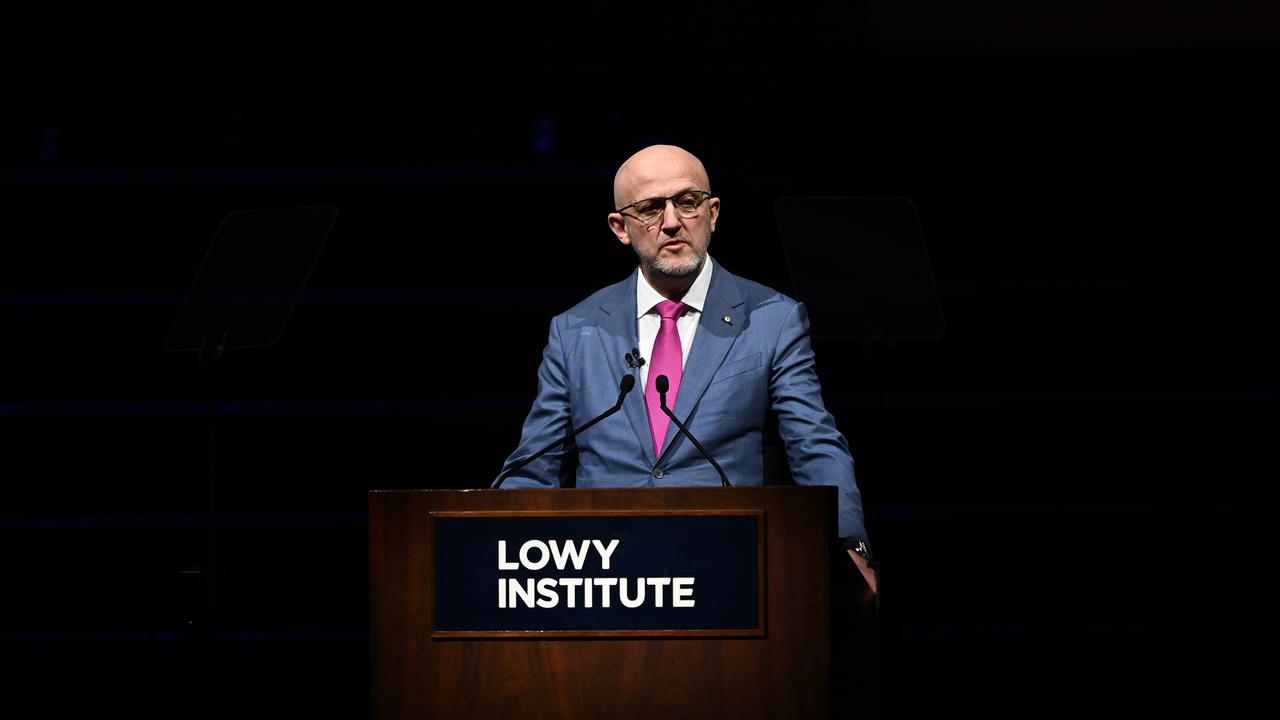
“By mentioning them publicly I’m also putting them on notice that we know some of you are prepared to do this and we will do our damnedest to stop it before it happens.”
During his speech, Mr Burgess said the degrading trajectory of Australia’s security environment alongside regimes’ growing willingness to do harm had formed the foundation of ASIO’s assessment.
“There is a realistic possibility a foreign government will attempt to assassinate a perceived dissident in Australia,” he said.
“We believe there are at least three nations willing and capable of conducting lethal targeting here.
“This threat is real.”
Some could try to hide their involvement by hiring criminal cut-outs, Mr Burgess said, pointing to a similar tactic used by Iran when it ordered the 2024 firebombings at Melbourne’s Addas Synagogue and Sydney’s Lewis Continental Kitchen.
He also mentioned recently uncovered links between between pro-Russia influencers in Australia and an offshore media organisation that “almost certainly” receives orders from Russian intelligence.
Another incident included a foreign intelligence service attempting to recruit Australians to gather information on the economy, critical minerals and the country’s nuclear submarine agreement with the US and UK.
Though Mr Burgess’s address did not name China, the spy chief was asked about the country’s absence.
“I did not mention China in my remarks today,” he said.
“But how do you know I wasn’t talking about things China did, in my remarks today?”
He chose not to name China primarily because his address was about factors that fray Australia’s social fabric.
“At the extreme end of that, that isn’t China,” he said.
“Although we do have some concerns there too.”
The internet’s ability to incubate disaffection, international conflicts like the war in the Gaza Strip, and extremist groups such as the National Socialist Network were all said to have played a role in the country’s deteriorating social cohesion.
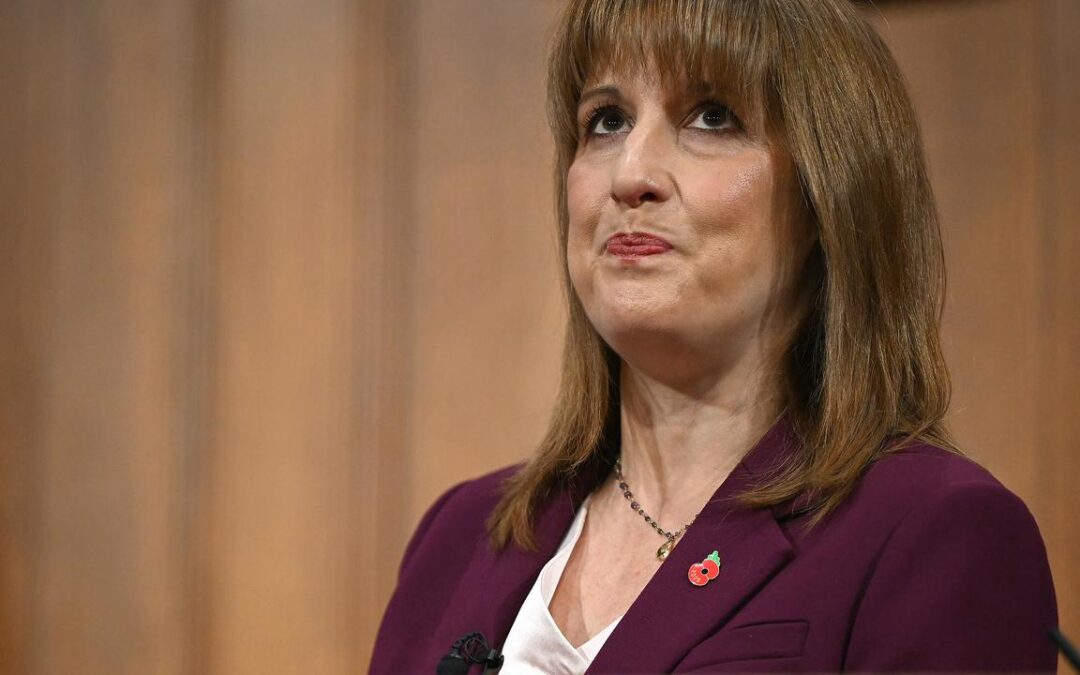
UK treasury chief prepares ground for tax-hiking budget
UK finance minister Rachel Reeves is signalling she will raise taxes in her budget, arguing the economy is sicker than the government knew when it took office.
Reeves gave a highly unusual speech, three weeks before the November 26 budget, to brace voters and financial markets for the likelihood she will break an election pledge not to increase income taxes or sales tax.
“If we are to build the future of Britain together, we will all have to contribute to that effort,” she said on Tuesday, in a hint at broad tax increases.
“Each of us must do our bit for the security of our country and the brightness of its future.”
Reeves cited interest payments on the UK’s Stg2.6 trillion ($A5.2 trillion) national debt and a lower-than-expected productivity assessment from the government’s economic forecaster as factors behind her decisions.
“The productivity performance that we inherited from the last government is weaker than we first thought,” Reeves said.
“We’re putting in more, we’re getting out less.”
On top of that, “the world has thrown even more challenges our way”, including US President Donald Trump’s tariffs, volatile supply chains and a rise in the cost of government borrowing, she said.
While many of the economic challenges are global, Reeves said Britain was especially exposed because of high debt left by “years of economic mismanagement” under the Conservative Party that was in power for 14 years until 2024.
The British economy, the sixth largest in the world, has underperformed its long-run average since the global financial crisis of 2008-09, and the centre-left Labour Party government elected in July 2024 has struggled to deliver the economic growth it promised.

Inflation remains stubbornly high and growth sluggish, frustrating efforts to repair tattered public services and ease the cost of living.
Critics say Reeves has made things worse by being overly downbeat and increasing taxes on businesses in the 2024 budget.
Reeves’ speech provided no details of what taxes she plans to raise.
She said the budget would deliver “growth and fairness” and would focus on strengthening the overstretched public health service, reducing the national debt and getting inflation down to improve the cost of living.
As well as preparing for a budget with huge implications for the country and government, Reeves has faced criticism after a newspaper reported last week that she had broken the law by renting out her London house without a license from the local authority.
She apologised for what she called an inadvertent mistake, and Prime Minister Keir Starmer said he would not take action.
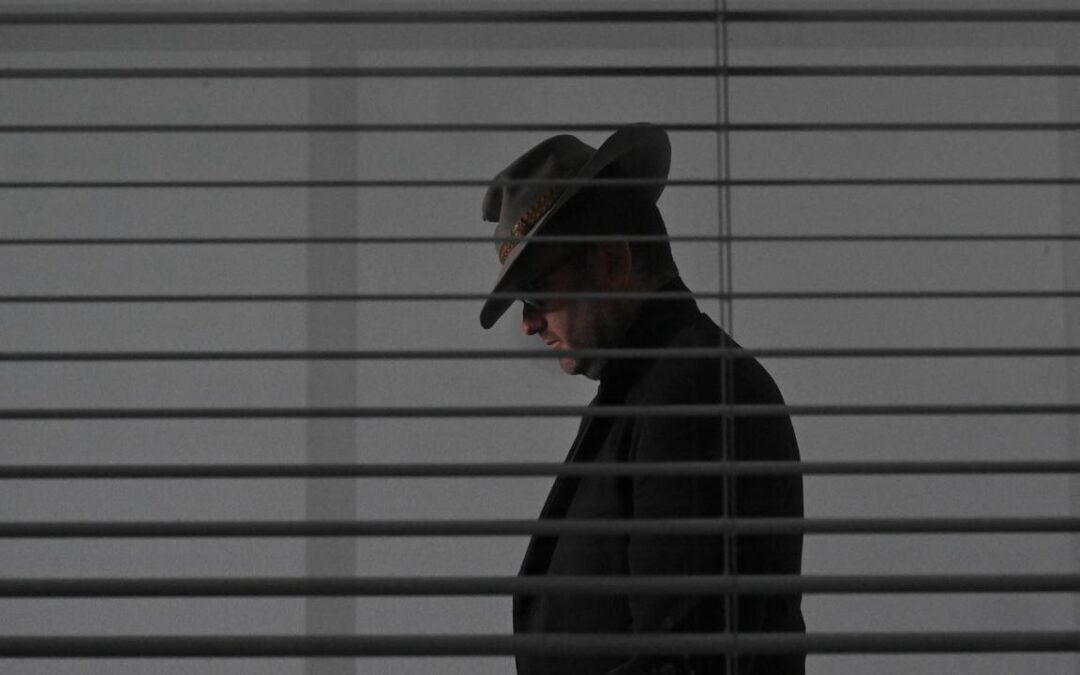
Australia warned of assassination attempts by regimes
An assassination attempt on Australian soil is a real possibility as foreign governments have grown more willing to do harm, the nation’s intelligence boss has warned.
At least three nations are willing and capable of attempting an assassination in Australia, Australian Security Intelligence Organisation director-general Mike Burgess revealed at the 2025 Lowy Lecture on Tuesday night.
“There is a realistic possibility a foreign government will attempt to assassinate a perceived dissident in Australia,” he said.
“This threat is real.”
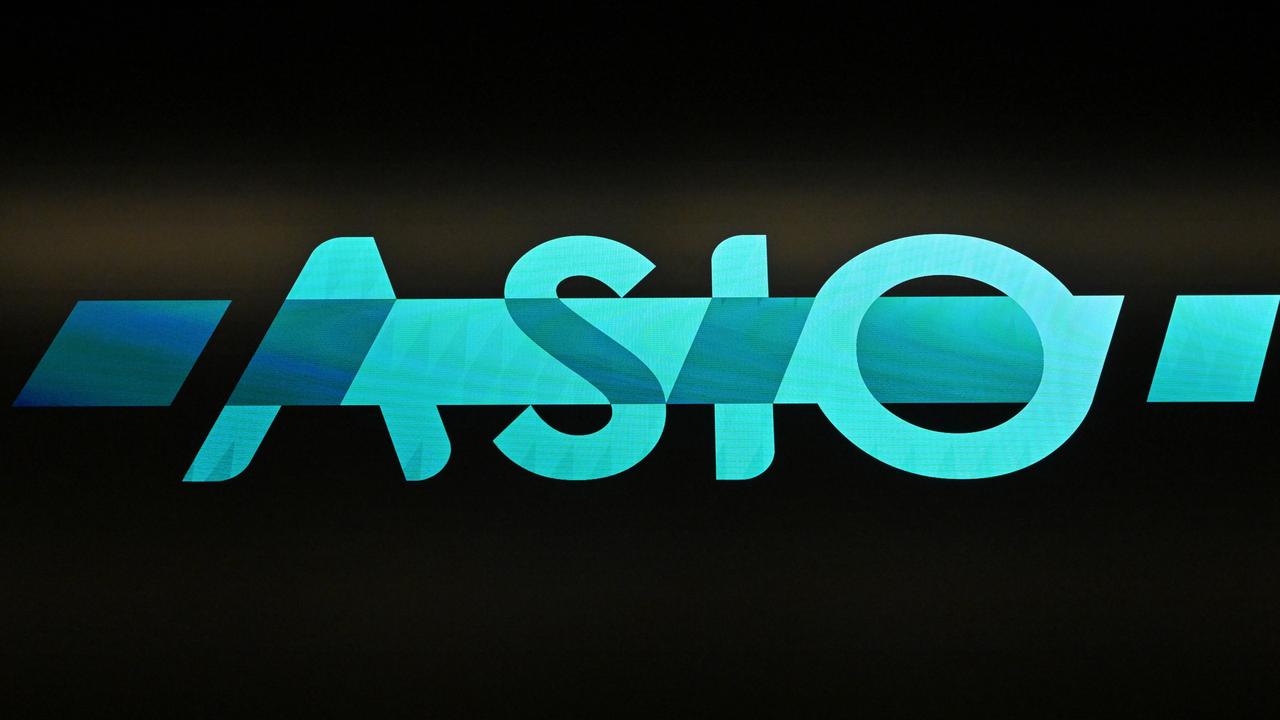
The spy chief stressed he was referring to assassination “attempts” and said ASIO was working around the clock against these threats.
Though he did not name those nations, Mr Burgess pointed to ways regimes have already taken aim at Australia.
Iran hid its involvement in the 2024 firebombings at Melbourne’s Addas Synagogue and Sydney’s Lewis Continental Kitchen by using a “complex web of cut-outs” that may not have even known they were receiving instructions from the Islamic Revolution Guard Corps.
Closer to Australia, ASIO suspects a strain of extremist propaganda that claims to be from a transnational terrorist group was actually created by a hostile nation.
Even Russia, which has always been a major espionage threat, appears to have upped the ante as the war with Ukraine makes intelligence gathering more urgent.
ASIO uncovered links between pro-Russia influencers in Australia and an offshore media organisation that “almost certainly” receives orders from Russian intelligence.
Another foreign intelligence service, which has claimed it does not spy on Australia, tried to recruit Australians to gather information on the economy, critical minerals and the country’s nuclear submarine agreement with the US and UK.
It even set up a face-to-face meeting with an Australian in a third country before ASIO intervened.
“Australia has never faced so many different threats, at scale, at once,” Mr Burgess said.
These foreign actors are eroding Australia’s social cohesion from afar as international conflicts, including Israel’s military offensive in Gaza, reshape the country’s security environment.
While the conflict in the Middle East did not directly inspire terrorism in Australia, it has elevated tensions, increased the likelihood of politically motivated violence and fuelled protest.
“Even if the ceasefire holds, we expect ongoing tests for our social cohesion,” Mr Burgess said.
The war in Gaza led to an increase in anarchist extremism, but nationalist and racist violent actors continue to make up the majority of ASIO’s investigations into ideologically motivated extremism.
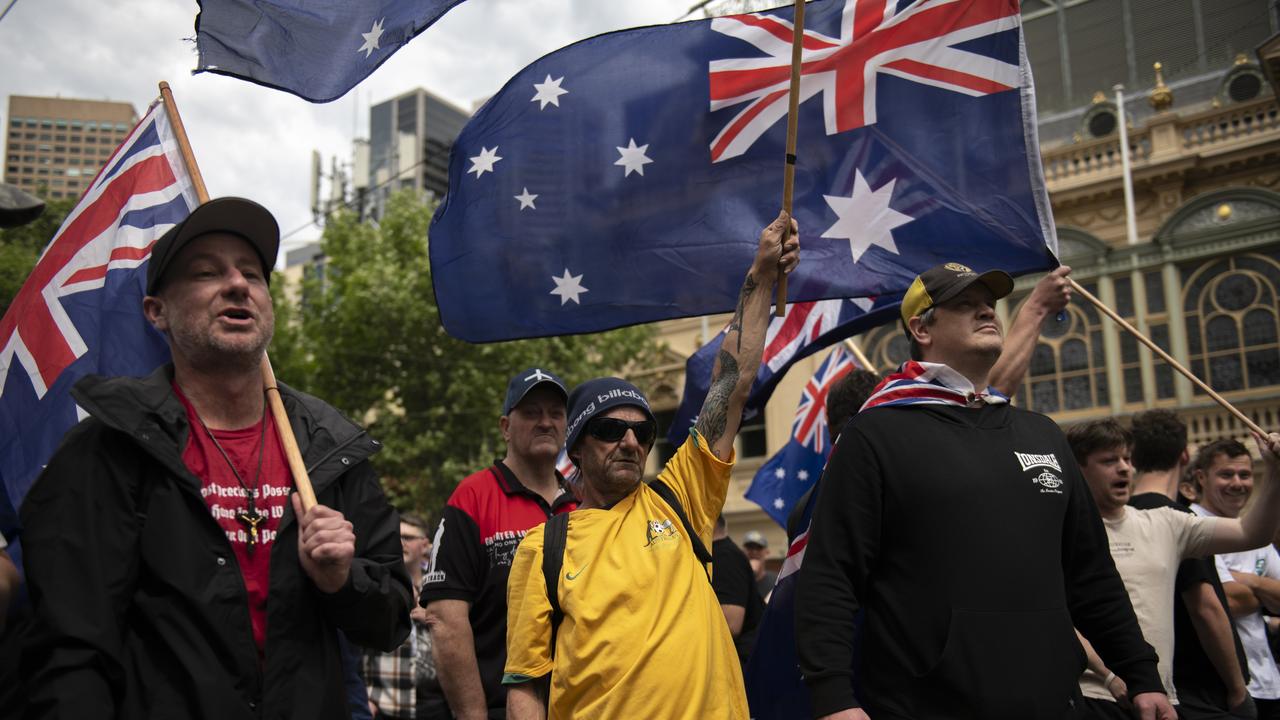
In August, for example, the nation’s largest neo-Nazi group used the March for Australia rallies in August to raise their profile by exploiting organisers’ complaints about immigration and the cost of living.
While the National Socialist Network may not engage in terrorism, Mr Burgess remains worried its hateful rhetoric and propaganda could give rise to violence.
But perhaps one of the biggest challenges for the spy agency is the internet, which aggravates every factor that threatens social cohesion.
Mr Burgess called it an “echo chamber for disaffection, misinformation and reinforcement” and warned the proliferation of AI could take online radicalisation to new levels.
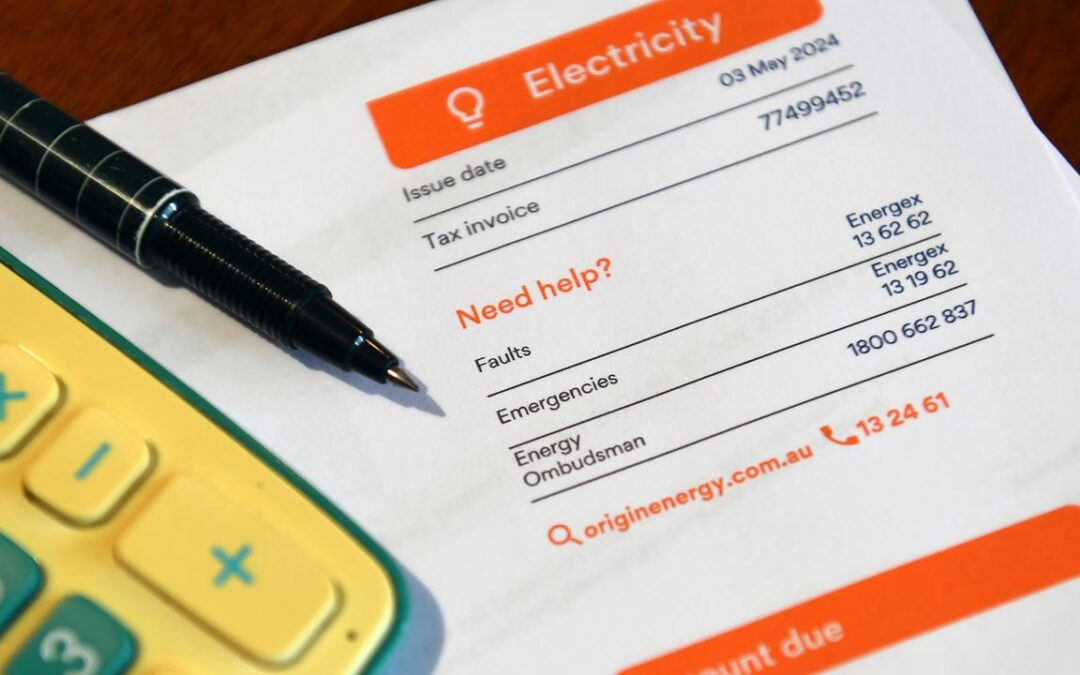
Jump in forecast inflation clouds interest rate hopes
The Reserve Bank has drastically lifted inflation forecasts after admitting its last estimate was off the mark, likely ruling out rate cuts until late 2026 at the earliest.
Released as its monetary policy board held interest rates steady on Tuesday, the RBA’s updated economic forecasts show the battle against inflation is far from over.
Trimmed mean inflation, which removes volatile items and is the central bank’s preferred measure, is now expected to climb to 3.2 per cent by December and stay there until at least June 2026.
In its August update, the bank said it expected underlying inflation to fall to around the midpoint of its 2-3 per cent target range and remain relatively steady.
Since then, September quarter inflation data came in “notably higher than expected” at one per cent, bringing the annual figure to three per cent.
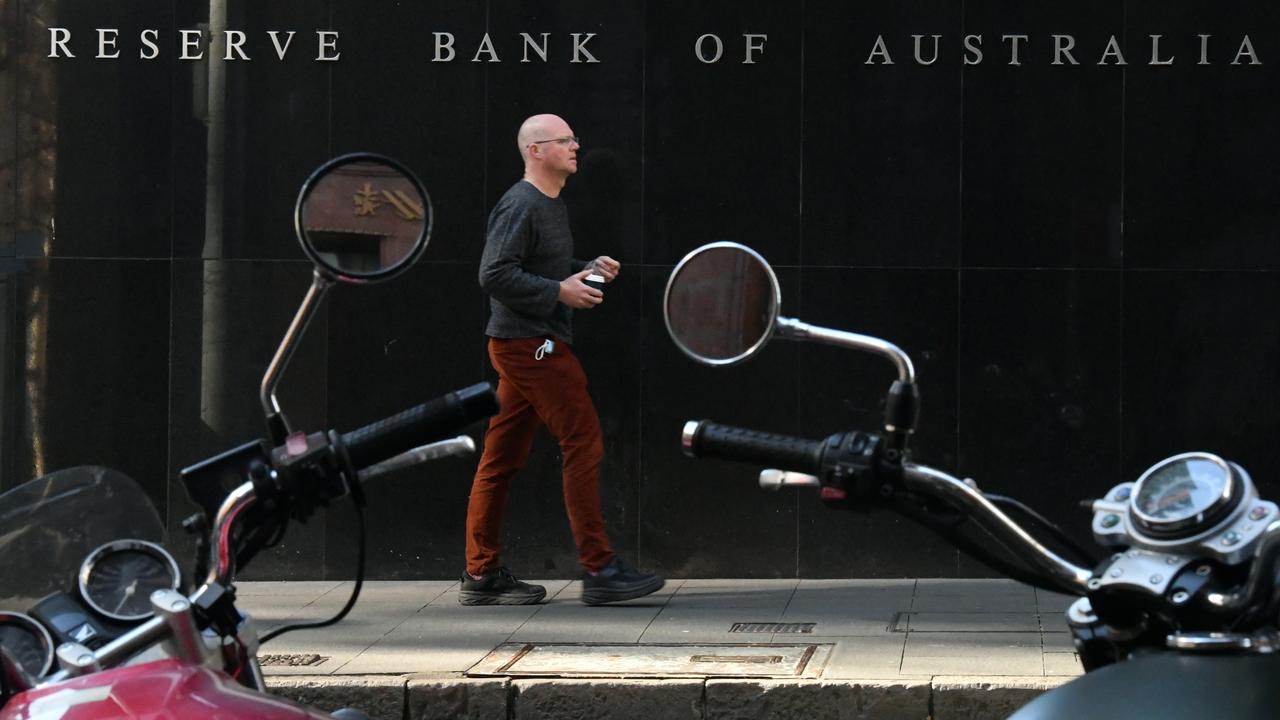
The spike in inflation was partly down to temporary factors like volatile international travel prices and a one-off rise in council rates, as well as some items that were included in the trimmed mean that will be excluded in future readings.
But other factors indicate ongoing inflationary pressures in the economy.
Although unemployment also rose in September, indicators such as low underemployment, a high vacancy rate, and an increase in workers voluntarily quitting jobs suggests the labour market remains relatively tight.
“Overall, recent data add weight to the possibility – identified as a risk in the August Statement – that there is slightly more capacity pressure in the economy than we previously assessed,” the statement said.
The RBA’s forecast assumes interest rates will fall in line with the expectations of money market traders, which would bring the cash rate to 3.35 per cent by mid-2026.
But the statement notes that there would still be some capacity pressures in the economy, assuming the cash rate follows the market path, raising the prospect that the RBA keeps rates on an extended pause to bring the economy back into balance faster.
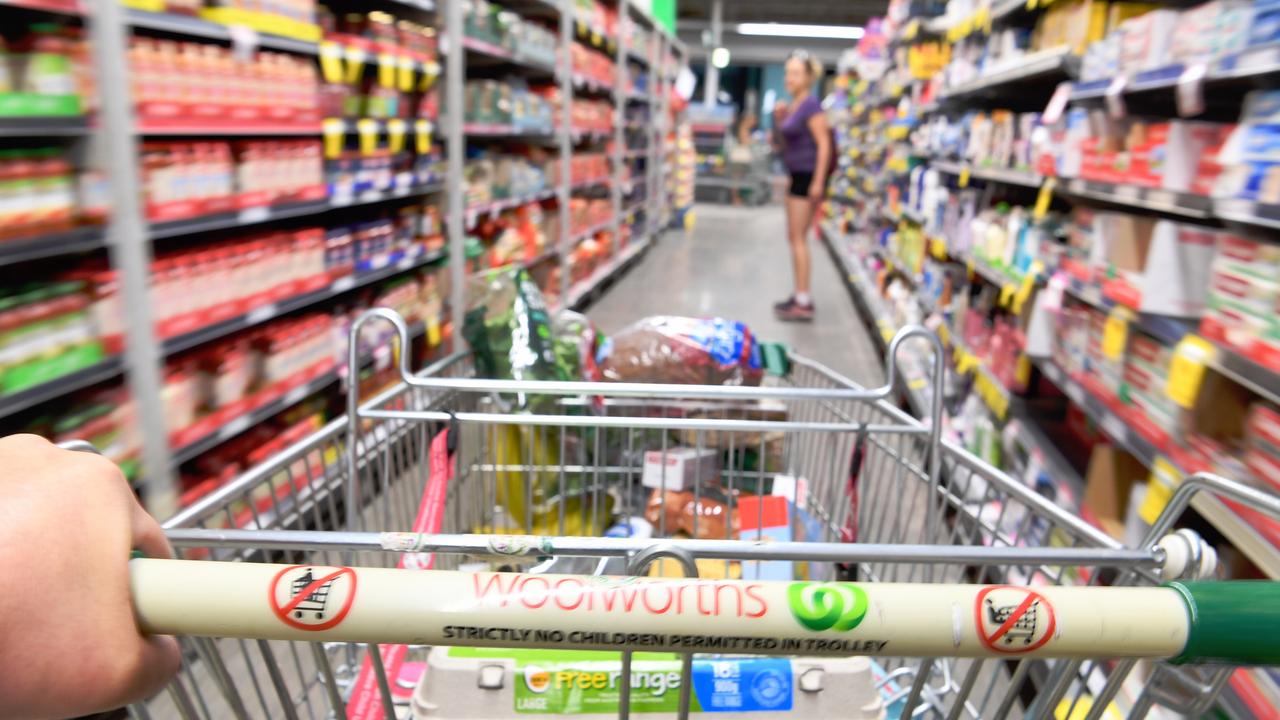
While underlying inflation is the bank’s main focus, Australian consumers are more attuned to headline inflation, which covers the full range of prices including volatile items.
And Australians are in for a bumpy ride, with the headline figure set to take off to 3.7 per cent by mid-2026 as federal government energy rebates come to an end.
Unemployment is predicted to stay around 4.4 per cent, after bouncing to 4.5 per cent in September, while growth in Australia’s gross domestic product is expected to hit its trend rate of two per cent this year, up from the previous forecast of 1.7 per cent.
The RBA also noted the global economy has been more resilient than expected in the face of US President Donald Trump’s tariffs.
China, Australia’s largest trade partner, has managed to find alternative markets for its exports but a slowdown in investment remains a risk to Australia’s economic growth outlook.
Much will depend on what Chinese authorities land on for next year’s growth target and its upcoming five-year plan, which are set to be determined in the coming months.
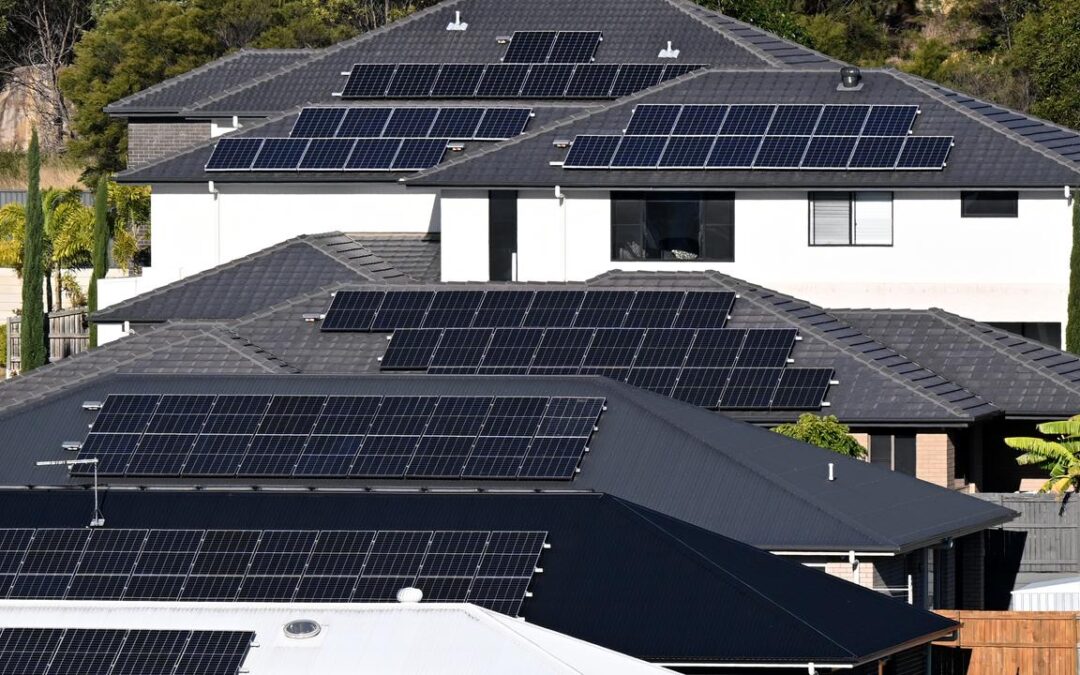
Fears ‘free’ electricity could come with hidden costs
Energy retailers say they’ve been blindsided by reforms promising free electricity to hundreds of thousands of Australians during peak solar power hours.
The Solar Sharer program, announced by the federal government on Tuesday, would give consumers free access to electricity for three hours each day as part of the default offer available.
Households in NSW, southeast Queensland and South Australia will qualify to access the program from July 2026, with negotiations under way to extend it to other states in 2027.
But a group representing electricity retailers has criticised the government’s lack of consultation about the change.
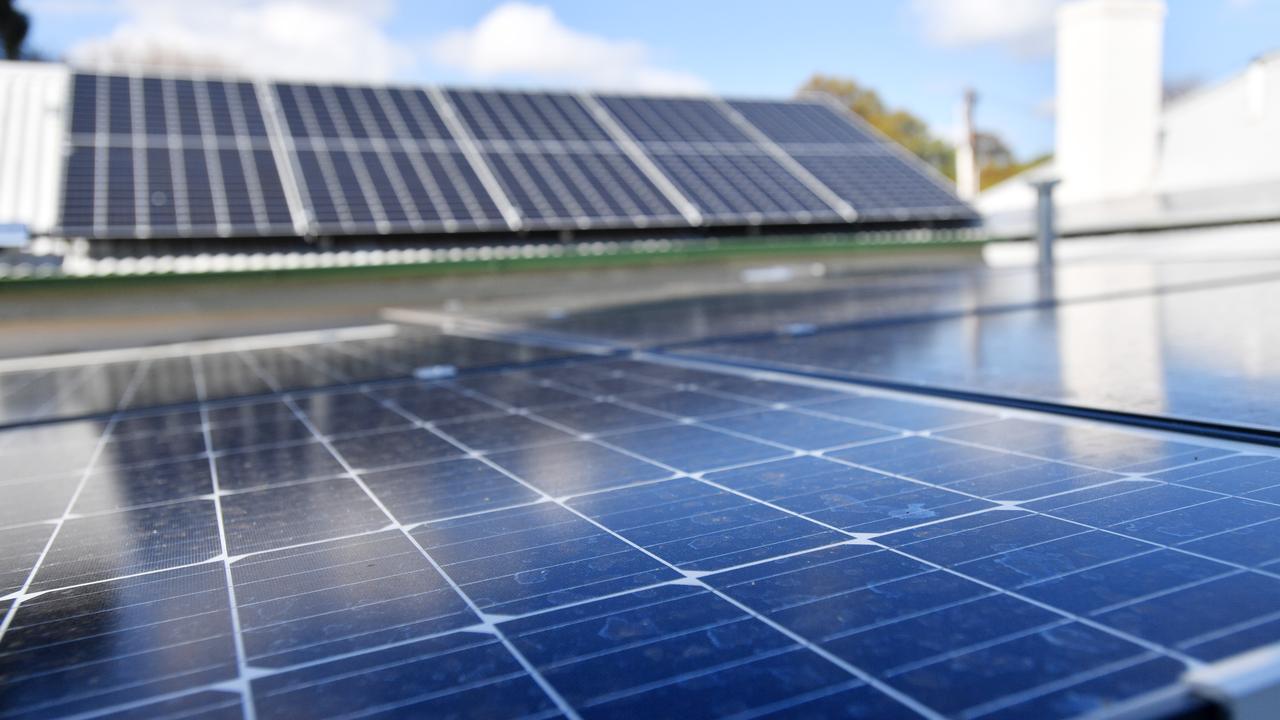
The Solar Sharer program will be introduced to the Default Market Offer, which acts as a minimum standard for plans and prices offered by electricity retailers.
Free electricity will be provided during the middle of the day when solar power generation peaks and will deliver benefits across the network.
“People who are able to move electricity use into the zero-cost power period will benefit directly, whether they have solar panels or not and whether they own or rent,” Energy Minister Chris Bowen said.
“The more people take up the offer and move their use, the greater the system benefits that lower costs for all electricity users will be.”
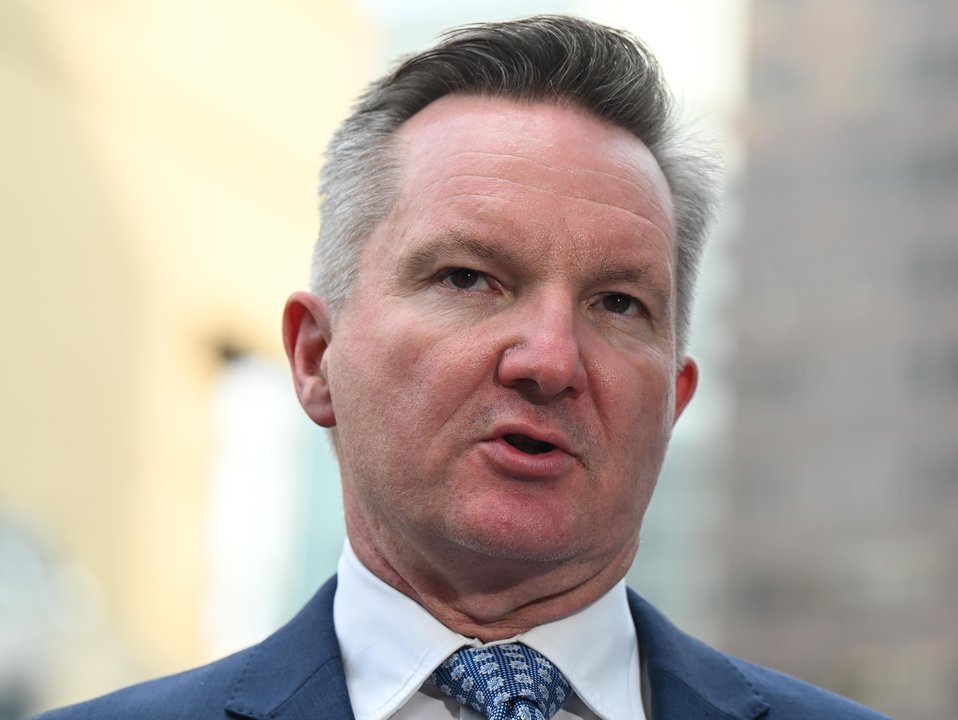
Households would need to have a smart meter installed to access the offer but could use it to power air conditioners, swimming pool cleaners, electric cars or home batteries, he said.
Analysis from the federal energy department showed a single-person household that could move 10 per cent of energy use to the three-hour period could save nine per cent on bills.
Retailers including AGL, OVO and Red Energy offer free access to electricity during specified hours, and an AGL spokesperson said it would work with the government on the detailed design of the proposed reform policy.
But the announcement came as a surprise to many retailers, even though the firms had spent five months in talks with the government on other market reforms.
“We are disappointed that the government didn’t consult with us ahead of time in announcing this decision,” Australian Energy Council chief executive Louisa Kinnear said.
“This lack of consultation risks damaging industry confidence as well as creating the potential for unintended consequences.”
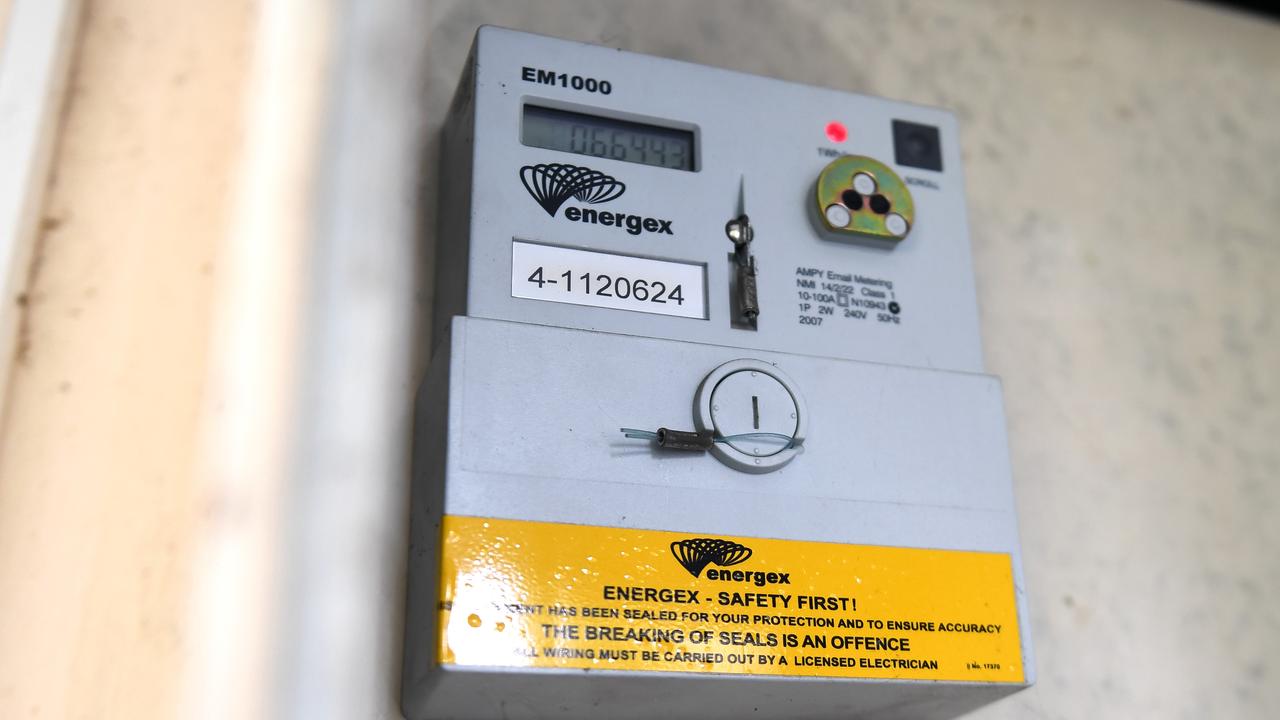
Nationals senator Matt Canavan, a key proponent of his party’s recent decision to ditch net-zero emissions targets, questioned whether consumers would be better off under the Solar Sharer plan or whether retailers would make people pay more at other parts of the day.
The proposed changes will be overseen by the Australian Energy Regulator and chair Clare Savage said the organisation would launch public consultation on the reforms and ensure fair, consistent pricing from providers.
“By establishing the proposal as part of the (Default Market Offer), more customers will have access to this type of offer but with the added confidence that they are not being overcharged outside the free power period,” she said.
Organisations including Solar Citizens, Rewiring Australia and the Clean Energy Council welcomed the changes, with council chief executive Jackie Trad saying they would help energy users shift demand into cheaper periods and avoid high evening prices.
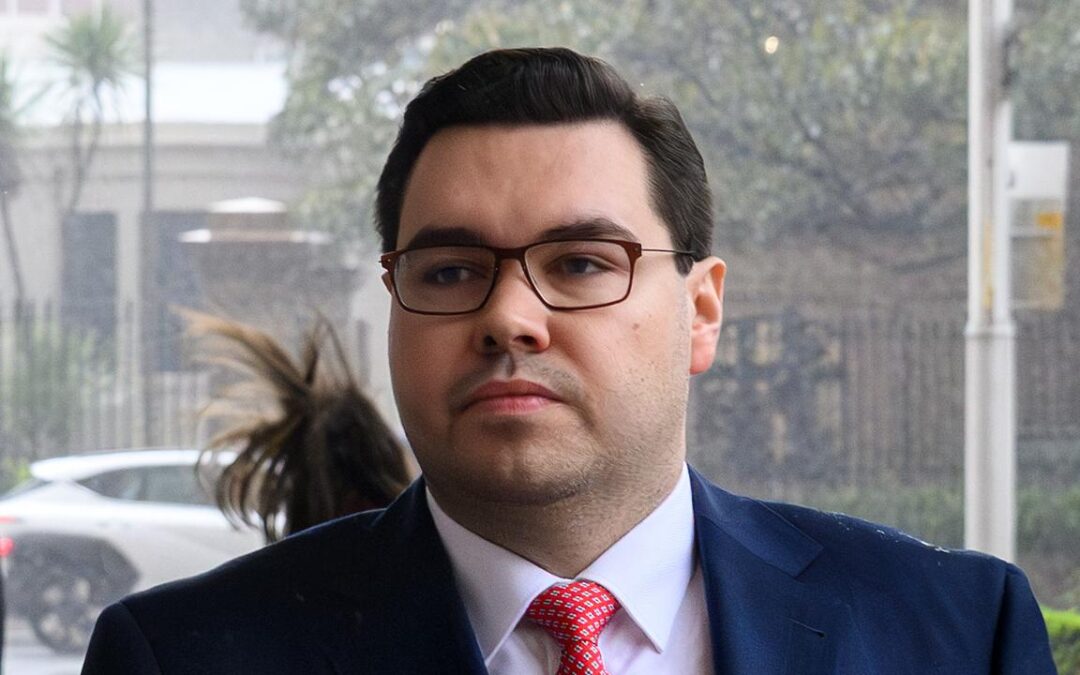
Lehrmann’s cost woes in anti-corruption submarine probe
Former Liberal staffer Bruce Lehrmann’s request for financial assistance has been knocked back after his home was raided by the national anti-corruption watchdog.
Officials from the National Anti-Corruption Commission searched the 30-year-old’s home in June 2024 over allegations he misappropriated secret documents related to French submarines five years earlier.
Lehrmann denies the allegation and has sought assistance from the federal government to cover his legal costs of the raid.
This request was rejected by federal Special Minister of State Don Farrell on October 22, the law student revealed in a brief Federal Court hearing on Tuesday.
After failing to hear back about funding for more than a year, Lehrmann has sued Mr Farrell and NACC Commissioner Paul Brereton seeking court orders forcing an outcome.
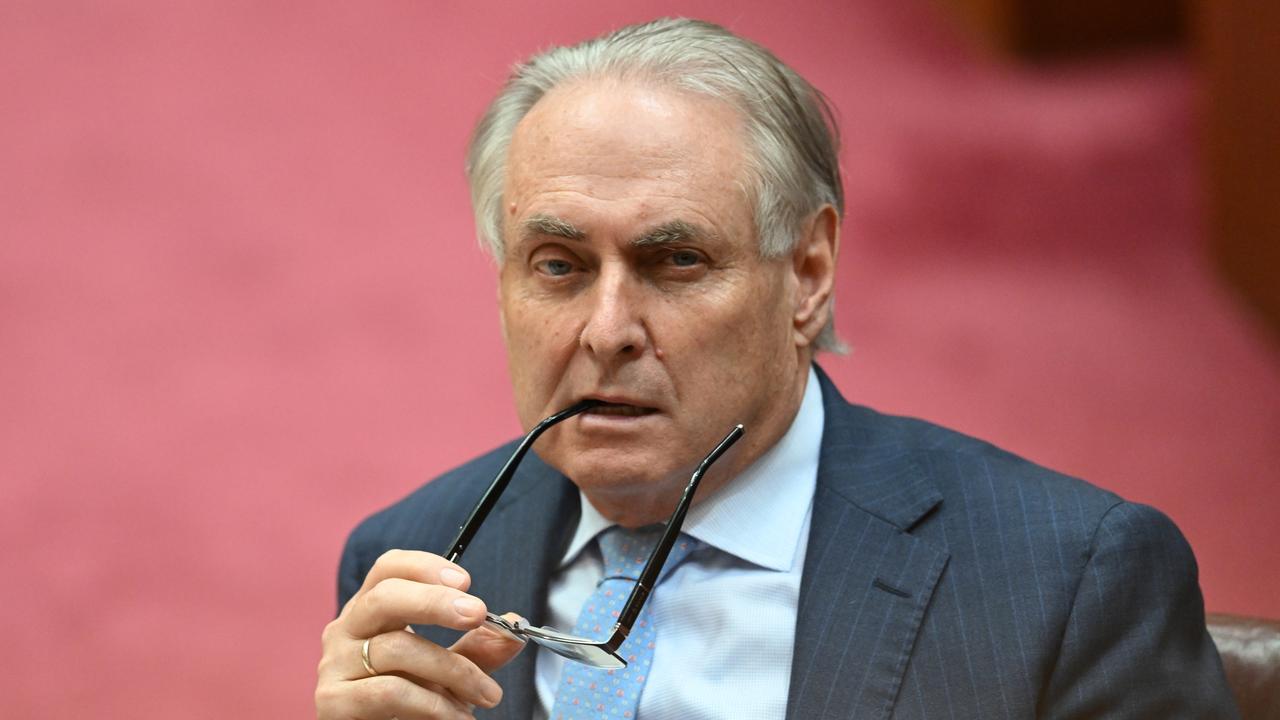
With a rejection now issued by the minister, the 30-year-old told the Federal Court in Hobart he would amend his case to call for a judicial review of the decision.
While mediation between the parties was called off due to the change in circumstances, Mr Farrell and Mr Brereton’s barrister Bora Kaplan SC said his clients would be willing to sit down with Lehrmann in the future.
The former staffer revealed he had also made a request for funding to federal Attorney-General Michelle Rowland.
While a hearing has been set down for February, Lehrmann indicated he was prepared to call for an urgent hearing sooner, fearing Christmas raids from the anti-corruption watchdog.
The watchdog could retaliate after being targeted by Lehrmann’s lawsuit and had not given an undertaking it would make no further moves against him before February, he told Justice Brigitte Markovic.
“The orders I seek don’t prejudice a new NACC investigation if they think I stole US submarine secrets now,” he said.
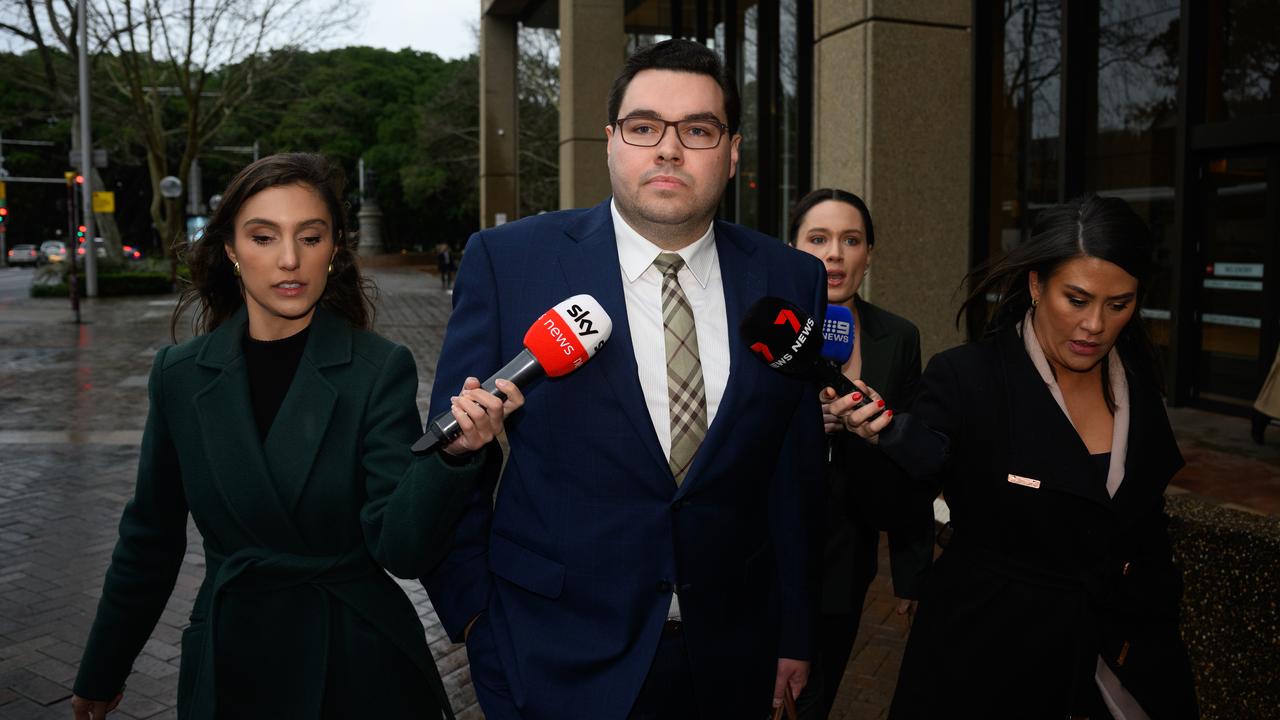
In October, Lehrmann told the court investigators seized two personal diaries during the raid on his home.
He claims the probe was spurred by “frivolous, James Bond like allegations”.
Lehrmann is accused of gathering the confidential information in March 2019, days after he allegedly raped his colleague Brittany Higgins in Parliament House.
He has denied the sexual assault claims, which remain untested in a criminal court after a 2022 trial in the ACT was abandoned due to juror misconduct.
But Federal Court Justice Michael Lee found in 2024 the allegations he raped Ms Higgins were proven on the balance of probabilities and dismissed his defamation suit against Network Ten and presenter Lisa Wilkinson.
Lehrmann has appealed against the defamation loss.
1800 RESPECT (1800 737 732)
National Sexual Abuse and Redress Support Service 1800 211 028

OpenAI, Amazon sign $US38b deal for AI computing power
OpenAI and Amazon have signed a $US38 billion deal that enables the ChatGPT maker to run its artificial intelligence systems on Amazon’s data centres in the US.
OpenAI will be able to power its AI tools using “hundreds of thousands” of Nvidia’s specialised AI chips through Amazon Web Services as part of the deal announced.
The seven-year agreement comes less than a week after OpenAI altered its partnership with its longtime backer Microsoft, which until early this year was the startup’s exclusive cloud computing provider.
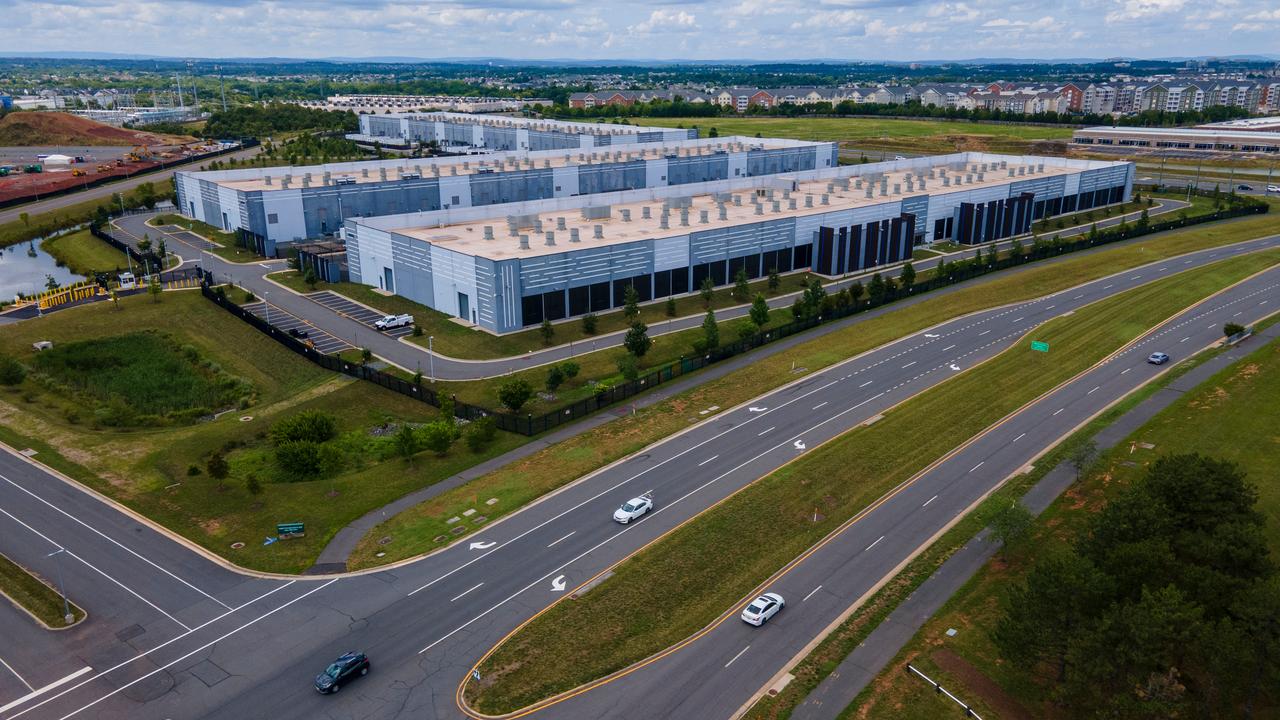
California and Delaware regulators also last week allowed San Francisco-based OpenAI, which was founded as a nonprofit, to move forward on its plan to form a new business structure to more easily raise capital and make a profit.
“The rapid advancement of AI technology has created unprecedented demand for computing power,” Amazon said in a statement.
It said OpenAI “will immediately start utilising AWS compute as part of this partnership, with all capacity targeted to be deployed before the end of 2026, and the ability to expand further into 2027 and beyond.”
AI requires huge amounts of energy and computing power and OpenAI has long signalled that it needs more capacity, both to develop new AI systems and keep existing products like ChatGPT answering the questions of its hundreds of millions of users.
It’s recently made more than $US1 trillion worth of financial obligations in spending for AI infrastructure, including data centre projects with Oracle and SoftBank and semiconductor supply deals with chipmakers Nvidia, AMD and Broadcom.
Some of the deals have raised investor concerns about their “circular” nature, since OpenAI doesn’t make a profit and can’t yet afford to pay for the infrastructure that its cloud backers are providing on the expectations of future returns on their investments.
OpenAI CEO Sam Altman last week dismissed doubters he says have aired “breathless concern” about the deals.
“Revenue is growing steeply. We are taking a forward bet that it’s going to continue to grow,” Altman said on a podcast where he appeared with Microsoft CEO Satya Nadella.
Amazon is already the primary cloud provider to AI startup Anthropic, an OpenAI rival that makes the Claude chatbot.